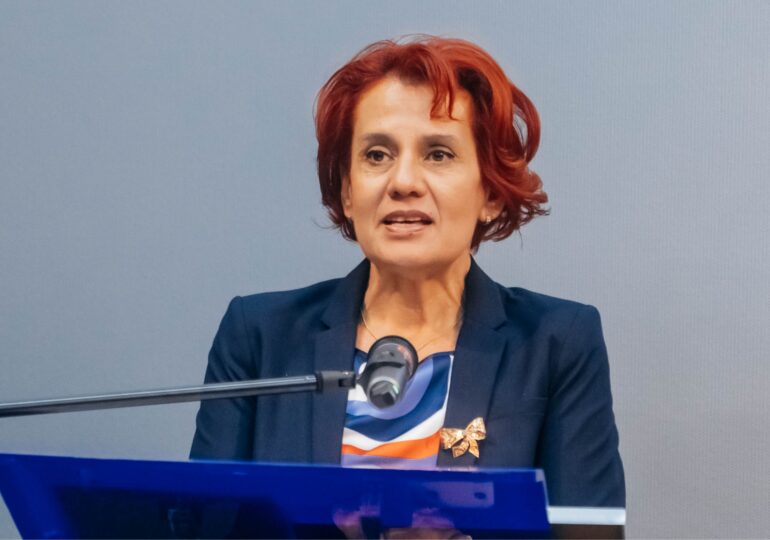Every 10 years, the Romanian electorate angrily tears down the political icon from the walls, shatters it into pieces, and enthusiastically replaces it with another icon that will be smashed with resentment and disappointment in a decade. And not just because they were deceived, but mostly because they deluded themselves.
Therefore, I believe that the first attempt of the upcoming period is the correct management of expectations. The often invoked exit, but, I fear, insufficiently metabolized exit from messianism.
The consultations that have begun at Cotroceni are the beginning of a journey that will generate a government for Romania. And I believe that, regardless of how it will actually look, a few aspects are clear and must be assumed.
1. It will be a compromise government. Romania cannot afford a minority government because it does not provide the necessary guarantees for financial markets to open their wallets and grant Romania the loans it depends on at sustainable interest rates. Already, 1.1% of Romania's GDP is swallowed up solely by interest rates.
To have a majority government, you need to bring parties with different visions and interests to the lowest common denominator, parties that are going through internal crises themselves and are rivals, if not with a very difficult, if not impossible, historic enmity to reconcile.
So, in order to make the construction functional, we must accept that no one can be fully satisfied and no one can be completely dissatisfied.
Sorin Grindeanu announces extensive consultations within the party with mayors. What do you think they will want? Not to receive money anymore? To be held accountable for every penny? A vigilant and severe DNA? Two-round elections? What do you think their conditions will be for PSD to enter the government? And the makeshift leadership of the party does not have the power or interest to engage in discussions with them, as the internal vote congress is approaching.
Do you think any of the major parties, with many mayors, truly desires an administrative territorial reform?
2. There is no miracle prime minister. There are high expectations related to Ilie Bolojan, not fantastical, of course, but based on his track record in Oradea and Bihor. However, things did not happen overnight there either, and the first, essential step was for Mr. Bolojan to build, with difficulty and political compromises, a majority to support his vision and decisions.
He does not have it now in Parliament, precisely for the reasons at point one. Furthermore, the party he leads has not yet been reformed itself, and there are frustrated liberal barons who are just waiting for him to fail to get rid of him. PNL will not be the leading force in governance, but PSD, which will make sure to limit its room for maneuver whenever it dangerously approaches the interests of the Social Democrats.
Let me give you an example. When Ilie Bolojan set out to reorganize the Senate's working apparatus, one of the first critics was Mr. Grindeanu, who then spread a lie that in Bihor, most of those laid off won in court.
And that was about the exclusive competence area of Mr. Bolojan. How will things work when Mr. Bolojan depends on the support of PSD, and Mr. Grindeanu could even be vice-premier, and the prime minister will implement what he said when he left Cotroceni: reducing state expenditures, reducing institutional inefficiencies, with staff reductions if necessary, eliminating sinecures, decentralization, and streamlining bureaucracy?
Why would PSD allow Ilie Bolojan to do whatever he wants, to succeed, and then defeat him in elections? For the sake of the country, of course, why didn't I think of that?
In these conditions, the risk of Ilie Bolojan failing and being pushed into the abyss is greater than his chance of success. And this situation, with its deep causes, must be very well understood. Because now many are hanging on to his prestige. When it gets tough, only those who did not believe in miracles will remain.
3. Exiting the current budgetary situation is impossible without unpopular measures, eliminating any increases, layoffs, and very likely tax hikes, as Ilie Bolojan himself said.
"The first challenge is to bring in additional revenues of 30 billion lei. This cannot be achieved either by raising taxes or just by cutting expenses. Going in only one direction would mean imbalance and tensions in society," explains UDMR leader Kelemen Hunor.
Those expecting otherwise will have a difficult landing in reality. The elections did not solve the problem; they only provided a real chance to start the difficult treatment.
Therefore, I believe the realistic expectation from the future government is to take urgent measures to prevent the country's bankruptcy under the most efficient and sustainable conditions, but not to trigger major reforms. This will only be possible after major reshuffles within the parties and most likely after the upcoming parliamentary elections, if and only if societal pressure remains constant and impossible to ignore.
We are in the current situation because society has tolerated the degradation of the political class without much resistance. Our situation reflects our votes in the last 35 years, measuring the realism and expectations of the past 35 years. Their change, and only their change, can lead to a change in the political class. If we do not understand this, we may as well shatter the new icon now.

